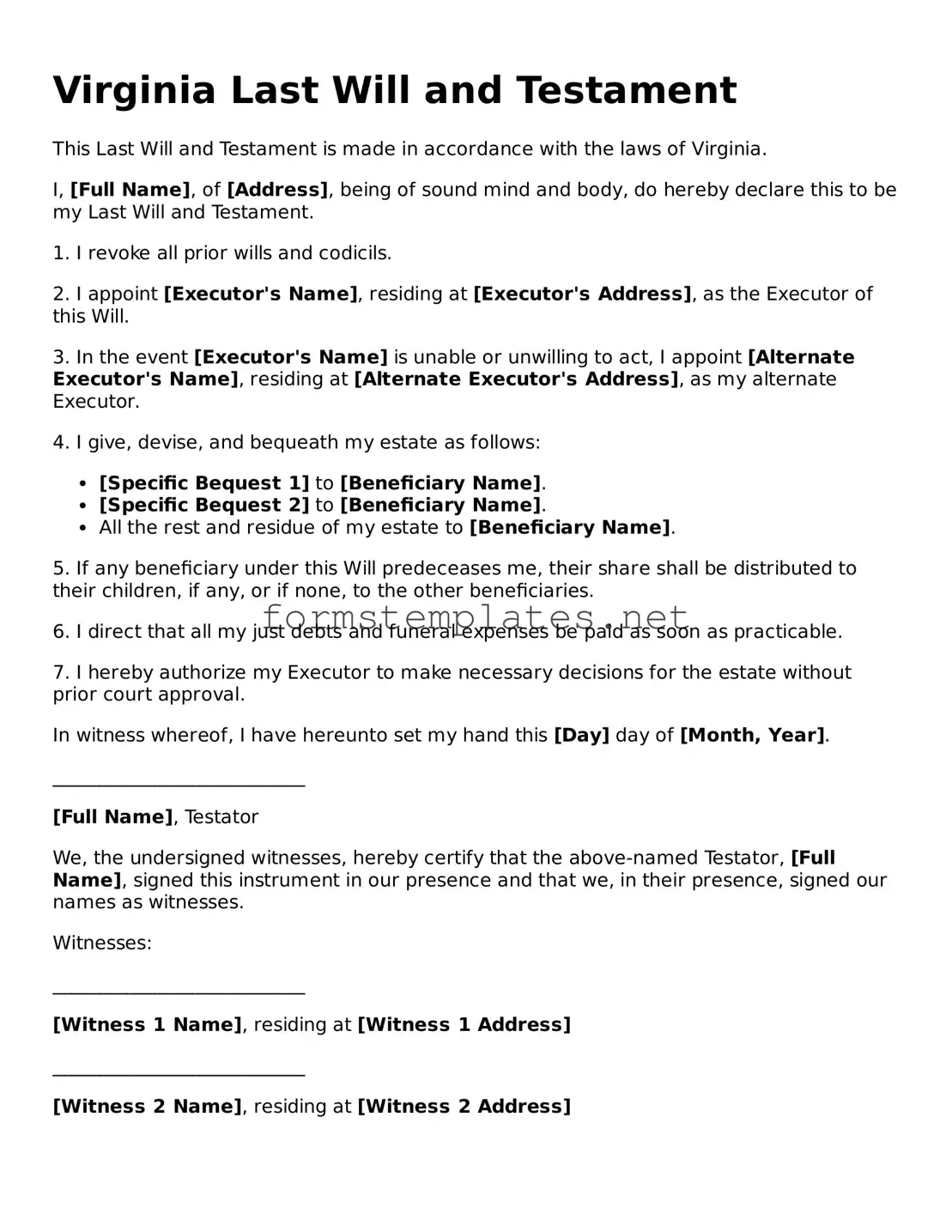Attorney-Approved Virginia Last Will and Testament Template
The Virginia Last Will and Testament form is a legal document that outlines an individual's wishes regarding the distribution of their assets after death. This form serves to ensure that the testator's intentions are honored and provides clarity to beneficiaries. Properly executing this document can help prevent disputes among heirs and streamline the probate process.
Open Editor Now

Attorney-Approved Virginia Last Will and Testament Template
Open Editor Now

Open Editor Now
or
⇓ PDF Form
Your form still needs attention
Finalize Last Will and Testament online — simple edits, saving, and download.